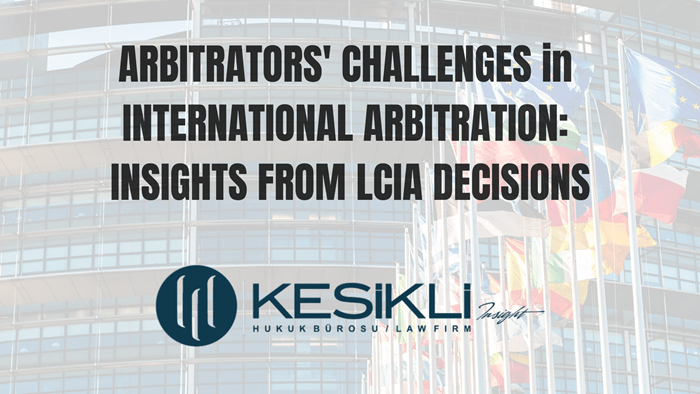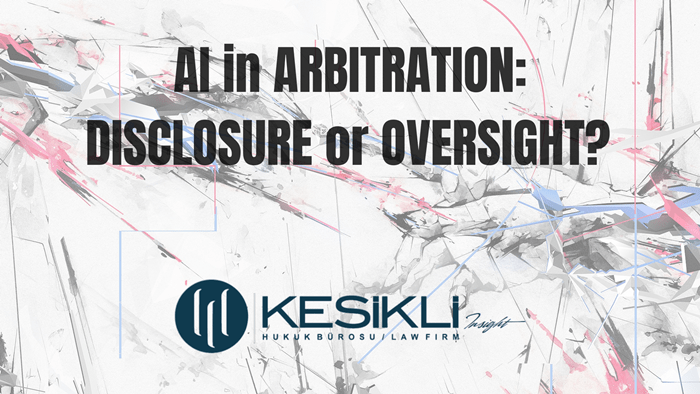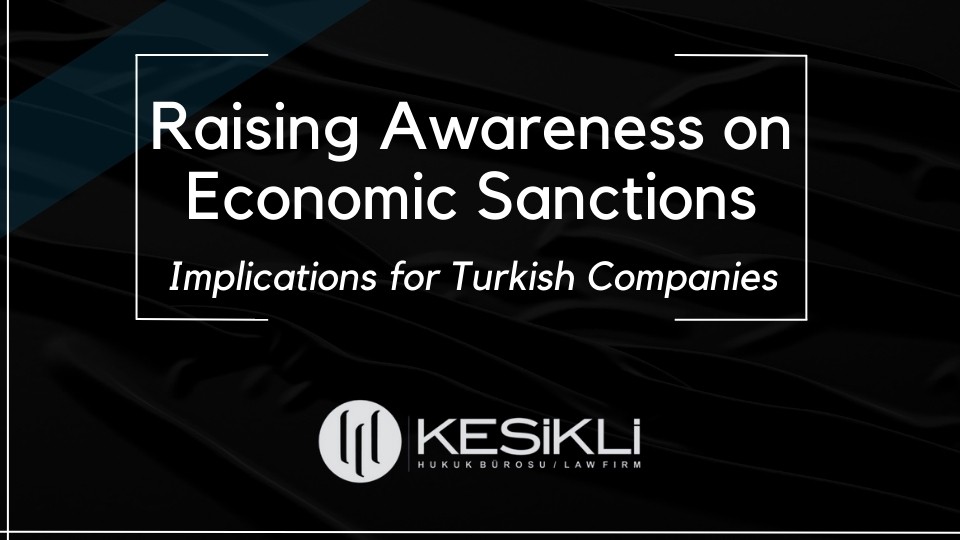The issue of evidence is undeniably central to arbitration proceedings. In international arbitration, a party’s ability to substantiate its claims often determines the outcome.
Due to the lack of detailed rules governing the presentation and admissibility of evidence in international arbitration, the question of whether evidence obtained through illegal means can be admitted remains a frequently debated issue. This matter has not yet been subject to strict written rules. Conceptually, since international arbitration proceedings are often conducted in English, we prefer the term "admissibility"1 (1 Cemile Demir Gökyayla, Milletlerarası Tahkimde İspat Hakkı ve Sınırlarına Uygulanacak Hukuk, Public and Private International Law Bulletin, 40(2), 2020, (https://dergipark.org.tr/tr/download/article-file/1285720), p. 739; Ömer Kesikli, Milletlerarası Tahkimde Delillerin Değerlendirilmesi, February 2023, p. 258; Ali Yeşilırmak, Pekcanıtez Usûl Medenî Usûl Hukuku, Vol. III, 15th Edition, Onikilevha, 2017, p. 2594; Additionally, the legislator, with Article 444 of the Civil Procedure Code (HMK) and Article 17 of the International Arbitration Code (MTK) (following the UNCITRAL Model Law), has provided that the rules of civil procedure in arbitration cannot be applied unless explicitly referenced in the arbitration agreement.) and will use it accordingly.
This article focuses on two difficult questions:
- What are the general limits of an arbitrator’s discretion in admitting illegally obtained evidence?
Firstly, it should be noted that the mandatory procedural rules of national courts regarding civil litigation do not apply to international arbitration unless explicitly referred to in the arbitration agreement.2 (2 Kesikli, p. 21.) However, different legal systems have varying approaches to illegally obtained evidence in civil litigation. 3 (3 For the evaluation of unlawfully obtained evidence in different legal systems, see: Kesikli, p. 296-297.) For instance, English law takes a more liberal stance and allows the use of such evidence while imposing financial penalties on the party relying on it. 4 (4 Peter Ashford, The Admissibility of Illegally Obtained Evidence, (2019) 85 Arbitration, Issue 4 © 2019 Chartered Institute of Arbitrators, p. 377.) In contrast, Continental European legal systems do not permit such flexibility, demonstrating the stark differences in legal approaches. 5 (5 Kesikli, p. 296-297.)
Arbitration, which is centered around party autonomy, generally grants arbitrators broad discretion in assessing evidence. 6 (6 Jeffrey Waincymer, Procedure and Evidence in International Arbitration, Zuidpoolsingel: Wolters Kluwer, 2012, p. 792; Musa Aygül, Milletlerarası Ticari Tahkimde Tahkim Usulüne Uygulanacak Hukuk ve Deliller, İstanbul: On İki Levha Yayıncılık A.Ş., 2014, p. 401; Kesikli, p. 258.) If the parties have agreed on specific rules regarding evidence, arbitrators are expected to follow them. Although parties theoretically have the power to determine the rules applicable to arbitration, in practice, they often refer to arbitration rules such as CIARB, AAA, LCIA, ICSID, or UNCITRAL. These rules state that arbitrators have the discretion to evaluate evidence, including its relevance, weight, and admissibility. However, they do not explicitly address the admissibility of illegally obtained evidence.
Nevertheless, many institutional arbitration rules emphasize the arbitrator's duty to treat parties equally and fairly, 7 (7 For example: UNCITRAL Arbitration Rules, Art. 17(1); 2017 ICC Arbitration Rules, Art. 22(4); AAA Arbitration Rules, R-32(a); DIAC Rules, Art. 17(2).) as well as the parties' right to be heard. 8 (8 For example: ISTAC Arbitration Rules, Art. 19.) Within this framework, the admissibility of illegally obtained evidence is generally left to the arbitrators' discretion under the principles of equality, fairness, and due process. The Prague Rules, which aim to enhance the efficiency of international arbitration, do not explicitly mention illegal evidence but emphasize equal treatment and due process rights. 9 (9 For access to the draft text of the Prague Rules, see: http://praguerules.com/prague_rules/) The 2020 amendments to the IBA Rules on the Taking of Evidence introduced a provision stating that an arbitral tribunal may refuse to admit illegally obtained evidence either upon a party's request or on its own initiative. 10 (10 For access to the 2020 IBA Rules, see: https://www.ibanet.org/MediaHandler?id=def0807b-9fec-43ef-b624-f2cb2af7cf7b; Kesikli, p. 298.) This implies that arbitrators may, at their discretion, admit such evidence.
However, the discretion of arbitrators is not unlimited. 11 (11 Cemile Demir Gökyayla, Milletlerarası Tahkimde Belge İbrazı, İstanbul: Vedat Kitapçılık, 2014, p. 26.) Their duty is to conduct a fair hearing in compliance with fundamental procedural safeguards such as equality of arms, 12 ( 12 Arbitrators have an obligation to treat the parties equally. See: Ziya Akıncı, Milletlerarası Tahkim, İstanbul: Vedat Kitapçılık, 2021, pp. 278-279.) the right to be heard, and the right to a fair trial while ensuring enforceability of the award. For an arbitral award to be enforceable, it must not violate public policy in the country of enforcement and must respect the parties' due process rights. 13 (13 Cemile Demir Gökyayla, Milletlerarası Tahkimde Belge İbrazı, p. 26.)
- What criteria should arbitrators consider to ensure their decision aligns with procedural safeguards and does not violate public policy?
In various legal systems, evidence obtained through illegal means is often excluded because the harm caused by its use outweighs the benefit gained by the presenting party. 14 (14 Kesikli, p. 294-295.) The right to privacy and other personal rights limit the right to present evidence, 15 (15 Pınar Çiftçi, Medeni Yargılama Hukukunda İspat Hakkı ve Sınırlamaları, İstanbul: Adalet Yayınevi, November 2018, p. 679.) and the abuse of the right to prove a claim 16 (Çiftçi, p. 667.) by using illegally obtained evidence is considered a violation of procedural fairness.
In international arbitration, which is not bound by national rules of evidence, excluding illegally obtained evidence may result in a decision that is neither fair nor based on the truth. On the other hand, allowing a party to gain an advantage through illegal means could violate the principle of equality of arms and call into question the fairness of the award. 17 (17 Paul Abraham, Admissibility of Illegally Obtained Evidence in International Arbitration: A Conduct-Based Analysis, The King’s Student Law Review, 2023, Vol XIII, Issue I, p. 32 (https://blogs.kcl.ac.uk/kslr/files/2023/03/3.-Abraham.pdf).
Since no written rules explicitly govern the exclusion of illegal evidence in international arbitration, sources guiding arbitrators on this matter are limited. Investment arbitration decisions under ICSID, where awards are published, and comparative law doctrines provide insight into how this issue is addressed.
ICSID decisions highlight two key principles: "equality of arms" and "good faith." 18 (18 Abraham, p. 30.) Good faith requires parties to cooperate with each other and the tribunal honestly. For instance, in Methanex Corporation v. United States of America, 19 (19 For access, see: https://www.italaw.com/cases/683.) the tribunal refused to admit evidence obtained through illegal means, citing the duty of good faith, equality of arms, and procedural fairness under UNCITRAL Rules. Similarly, in EDF v. Romania 20 (20 For access, see: https://www.italaw.com/cases/375.), an audio recording was excluded due to concerns over good faith and the integrity of the arbitration process.
In the Yukos v. Russia case, 21 (21 For access, see: https://hudoc.echr.coe.int/fre#%7B%22itemid%22:%5B%22001-145730%22%5D%7D) while the tribunal did not explicitly rule on the admissibility of WikiLeaks documents, it relied on them in its decision, despite their illegal disclosure. In contrast, in Libananco v. Turkey, 22 (22For access, see: https://www.italaw.com/cases/626.) the tribunal ruled that Turkey’s access to privileged email communications between the claimant and its legal counsel violated procedural fairness and excluded all such communications from the arbitration.
In Caratube v. Kazakhstan, 23 (23 For access, see: https://www.italaw.com/cases/211.) the tribunal allowed the use of documents obtained through a cyberattack, provided they were not privileged. The ruling differentiated between illegally disclosed evidence that is publicly available and privileged evidence, which was excluded.
In a CAS arbitration case (Ahongolu Fusimalohi v. FIFA), 24 (24 For access, see: https://arbitrationlaw.com/library/cas-2011a2425-ahongalu-fusimalohi-v-fifa.) the tribunal held that evidence should be excluded only if it also violated Swiss public policy. The Swiss Federal Supreme Court has ruled that good faith is a fundamental legal principle and a component of Swiss public policy, implying that illegally obtained evidence could be excluded on this basis.
Conclusion
The following key messages emerge from these cases:
- Clean Hands Doctrine: 25 (25 Caroline Le Moullec, The Clean Hands Doctrine: A Tool for Accountability of Investor Conduct and Inadmissibility of Investment Claims, 2018, Arbitration: The International Journal of Arbitration, Mediation and Dispute Management, Issue 1, p. 1337, https://kluwerlawonline.com/journalarticle/Arbitration:+The+International+Journal+of+Arbitration,+Mediation+and+Dispute+Management/84.1/AMDM2018022) If a party played a direct or indirect role in obtaining the evidence illegally, it should be excluded from the proceedings. If an arbitral tribunal fails to exclude such evidence, a challenge on public policy grounds may arise in annulment or enforcement proceedings. However, the limited judicial review in arbitration raises concerns about ensuring proper oversight of arbitrators' discretion in this regard.
- Absence of Party Involvement: If a party did not participate in obtaining the evidence illegally, arbitrators must balance the legal interest harmed by its use against the interest in reaching a truthful decision. 26 (26 Abraham, Admissibility of Illegally Obtained Evidence in International Arbitration: A Conduct-Based Analysis, p. 40.) For instance, in Caratube, the tribunal allowed the use of publicly available documents obtained through a cyberattack. 27 (27 For access, see: https://www.italaw.com/cases/211.) However, this approach risks encouraging parties to obtain evidence through illegal means while avoiding direct involvement.
Furthermore, if the violation of law is severe enough to contravene public policy, balancing interests may not be appropriate, and the evidence should be excluded outright. For example, if the evidence was obtained through torture, threats, or coercion, or if it violates fundamental human rights or procedural safeguards, it should not be admitted under any circumstances.
Av. Dr. Ömer KESİKLİ
Let's Get Connected!



